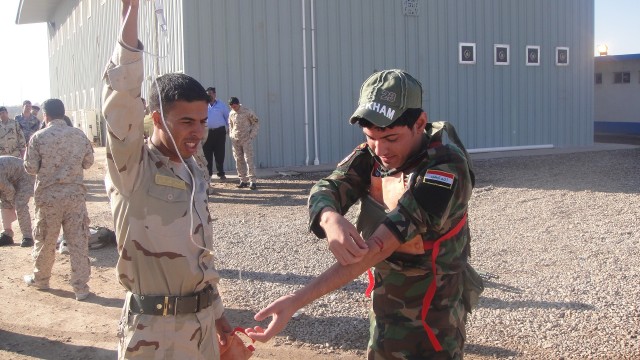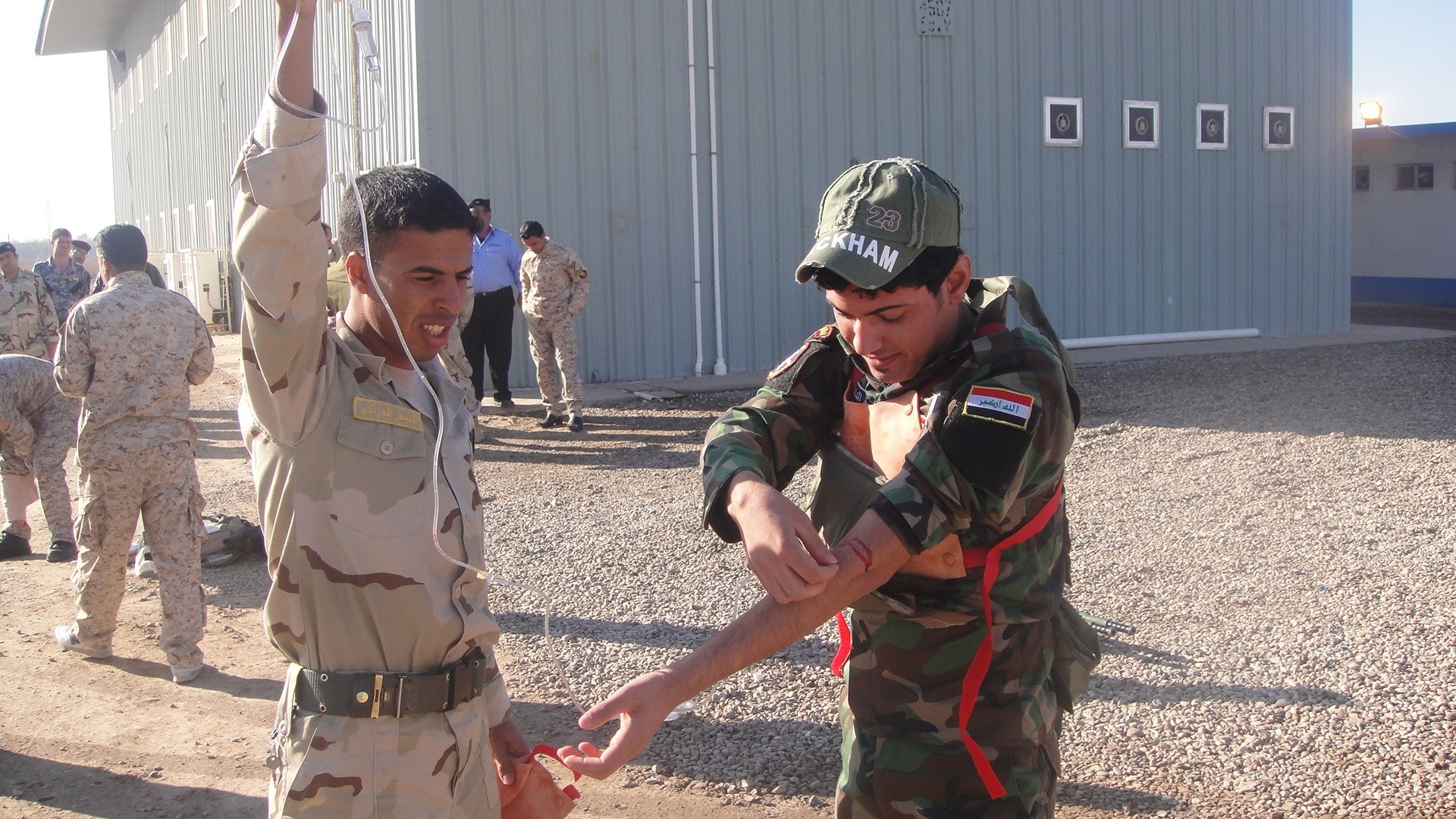
JOINT SECURITY STATION CHILAT, Iraq (Jan. 19, 2010) -- Using the naked eye, Iranian sentries along the border with Iraq can monitor 2nd Commando, 11th Iraqi Department of Border Enforcement in northern Maysan.
Everyone here is at risk. Located in isolated terrain at the northern end of the Maysan Province and 500 meters off the Iranian border, the outpost demands self-sufficiency from its inhabitants.
When the U.S. Army's Border Transition Team "Phoenix" arrived to advise the 500 Iraqi border personnel located there, they quickly discovered one glaring deficiency: a lack of any formal medical training strongly inhibited the unit's ability to conduct missions.
At the time, nobody could have guessed that the solution to this problem would span 12 months and require coordination at the highest levels of the Iraqi government.
Border enforcement in Iraq falls under the Ministry of Interior, which currently has no medical-specific training for personnel. The only option was to get approval to allow the border guards to attend a Ministry of Defense course designed for Iraqi Army personnel. This inter-ministry cooperation in medical training had never taken place within the Iraqi government.
Starting with the most basic tasks, the BTT medical advisor would personally train six medic candidates over the next six months. This training allowed the BTT medic to select two prime candidates from the six who could successfully attend formal medical training.
"I really feel that after I'm done training these two soldiers they will be able to pass any medical course," said Sgt. 1st Class Jimmy Moore, BTT Phoenix medical advisor, from Fort Knox, Ky.
Despite several obstacles, the Iraqi commander and his U.S. advisors did not give up hope. Using numerous contacts and resources, Col. Waleed Hussein Taopi, 2nd Commando commander, and Maj. Dante Antonelli, Task Force Phoenix team chief, pressed for the border guards to attend the course. After some deliberation, the commander of the course allowed entry to two 2nd Commando medic candidates.
"This training is very important for us and is something we are in great need of, especially with no doctors currently assigned to the unit," said Iraq native Waleed a Basrah.
Unfortunately, while traveling to Taji, one of the two candidates was injured in a motor vehicle accident. The other candidate, Ali Salah Medhi, would have all the responsibility for the medical future of his unit resting firmly on his shoulders alone.
Through grit, determination and the combined efforts and partnership of the 2nd Commando and Task Force Phoenix, Ali graduated the 45-day Basic Medic Course Dec. 5 and was invited to remain in Taji and attend the follow-on Medic "Train-the-Trainer" course.
Through a single border guard, the ability of Iraqi ministries to work together for the betterment of the country was proven.
Now a trained medic, Ali will spend his days helping his unit conduct their mission by providing high-standard medical care within his unit and training his fellow border guards to care for each other under the most austere and challenging conditions.
"This is a great step for the commandos," said Maj. Dante Antonelli, from Fort Bragg, N.C., team chief for BTT Phoenix. "Ali will return to his unit trained and prepared to run a battalion aid station and train other troops. At a grassroots level, this is what working on a transition team is all about. This is a success."

Social Sharing